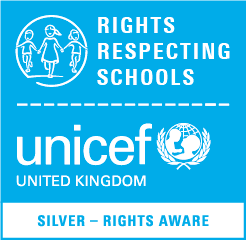Safeguarding
Child Protection and Safeguarding at Fairway Primary Academy
Our designated persons for safeguarding are:
Mrs Darren Mann – Headteacher & Lead DSL
Mrs Andrea Gray – Deputy Headteacher & Deputy DSL
Mrs Leonie Ward – SENDCo/LAC & Deputy DSL
Mrs Michelle Sawyers - Y1 Teacher and Deputy DSL
Ms Elizabeth Hammett-Kay – Y5 Teacher and Deputy DSL
Mr Richard Phillips- FSW and Deputy DSL
Our designated person for LAC/Post LAC is:
Mrs Ward – SENDCo
Additional Family Support is provided by Lisa Sinclair and Richard Phillips
What to do if you have a concern about a child
If you have any safeguarding concerns or are worried about the safety and welfare of a child please speak to one of our Safeguarding Leads without delay.
Parents and other members of the school community can also contact the - The Children's Advice and Support Service (CASS).
CASS provides a single point of contact for members of the public and for professionals who want to raise concerns about a child. They will listen, assess your concerns, and can take action if a child is at risk.
If you're not sure whether a child is at risk you can discuss the circumstances with them or with someone else who works with children. All professionals who work with children have a responsibility to safeguard them and will know how to help. Telephone: 0121 303 1888
More information about safeguarding children in Birmingham can be found on the following website:
https://www.birminghamchildrenstrust.co.uk/homepage/64/i_need_help_with
Please read our Safeguarding Policy to find out more about how we keep children safe.
If you would like support for your family, for instance with:
- Food and clothes bank
- Housing and benefit advice
- Family support
- Under 5's and SEND support
- Financial support
- Information and referrals to local resources
Then please speak to school for support with signposting, or contact the Northfield Community Partnerships to self-refer https://www.northfieldcommunity.org/northfield-families
Operation Encompass - Information for parents
Operation Encompass is a police and education early information sharing partnership enabling schools to offer immediate support for children and young people experiencing domestic abuse. Information is shared by the police with a school's trained Key Adult (DSL) prior to the start of the next school day after officers have attended a domestic abuse incident thus enabling appropriate support to be given, dependent upon the needs and wishes of the child.
Children experiencing domestic abuse are negatively impacted by this exposure; domestic abuse has been identified as an Adverse Childhood Experience and can lead to emotional, physical and psychological harm. Operation Encompass aims to mitigate this harm by enabling immediate support, making a child's day better and giving them a better tomorrow.
Operation Encompass believes that children are victims of domestic abuse in their own right and should be acknowledged as such.
Further information can be found HERE
Operation Encompass Key Adults are Andrea Gray and Leonie Ward
If you are experiencing domestic violence, please click on the following links for support or speak to one of our DSLs:
Birmingham and Solihull Women’s Aid
Birmingham and Solihull Women’s Aid supports women and children affected by domestic violence, rape, sexual assault, FGM or forced marriage.
You can find out more at https://bswaid.org/
or by calling 0121 685 8687.
WAVE
Wash Away The Victim’s Effects (WAVE) support all victims of domestic abuse regardless of gender, sexuality or ethnicity. They encourage and support victims through the criminal process, offering ongoing support with no end date. WAVE also help victims with emergency applications for non molestation orders.
Contact can be made with WAVE 24 hours a day, seven days a week via the website Website https://washawayvictimeffects.co.uk/
by calling 07734 775534 or 07734 775758, or by email wavedomesticviolence@gmail.com











